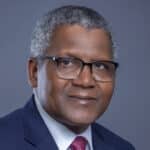Table of Contents
What is Robert Kuok’s Net Worth?
Robert Kuok, often referred to as the “Sugar King of Asia,” has an estimated net worth of $11.5 billion. He is one of Malaysia’s most prominent business magnates and investors. Kuok’s wealth stems from a diverse portfolio of business interests spanning multiple industries. His biggest source of wealth is his stake in Wilmar International, the world’s largest listed palm oil trader.
In addition, he has significant investments in properties, hotels, logistics, and commodities. The Kuok Group, which he founded, has grown into a multinational conglomerate with operations across six continents.
One of Kuok’s most recognizable assets is the Shangri-La Hotels and Resorts chain, which he founded in 1971 and has since expanded globally. His property investments through companies like Kerry Properties and Allgreen Properties have also contributed substantially to his wealth.
At 100 years old, Kuok has largely retired from the day-to-day operations of his businesses, with many of his companies now run by the next generation of Kuoks, including his children and nephew.
Here’s the breakdown of Robert Kuok’s net worth:
|
Name: |
Robert Kuok |
|
Net Worth: |
$11.5 Billion |
|
Date of Birth: |
October 6, 1923 |
|
Profession: |
Businessperson |
If you’re curious about how we estimate a celebrity’s net worth, you can check out our methodology here.

Early life and education
Robert Kuok was born on October 6, 1923, in Johor Bahru, Malaysia. He grew up speaking his parents’ Chinese Fuzhou dialect, English, and Japanese during Japan’s wartime occupation of Malaysia.
Kuok received his education at Raffles Institution and English College Johore Bahru.
Despite attending English schools, he also took a detour to learn Chinese, which proved valuable in his later business dealings.
Business career
Kuok started as an office boy and later worked as a clerk in the rice trading department of Japanese industrial conglomerate Mitsubishi Shoji Kaisha during World War II. After the war, he founded Kuok Brothers Sdn Bhd in 1949 with his brothers and cousin, trading agricultural commodities.
His big break came in 1959 when he formed Malayan Sugar Manufacturing Co. Bhd. with Japanese partners. Kuok’s shrewd moves in the sugar industry, including buying cheap sugar from India before prices rose, earned him the nickname “Sugar King of Asia”.
Kuok expanded into various sectors, including hotels (founding the Shangri-La chain in 1971), real estate, shipping, and palm oil. Today, his biggest source of wealth is his stake in Wilmar International, the world’s largest listed palm oil trader.
Politics
While Kuok has generally maintained a low political profile, he has played significant roles in Malaysian and regional politics. In 1975, he met with Hussein Onn, who was to become Malaysia’s third Prime Minister, advising him on building a strong and modern nation regardless of racial representation.
Kuok was appointed as a Hong Kong Affairs Advisor before the transfer of sovereignty over Hong Kong and took a minority stake in CITIC Pacific. In 2018, he was appointed to the Council of Eminent Persons to advise the new Pakatan Harapan federal government in Malaysia.
Despite living in Hong Kong since 1973, Kuok has maintained close ties with both Malaysian and Chinese governments.
Personal life
Robert Kuok has been married twice, first to Joyce Cheah and then to Pauline Ho Poh Lin. He has eight children from both marriages. Known for his humility and media shyness, Kuok resides in the Deep Water Bay neighborhood on Hong Kong Island.
In 2018, Kuok published his memoir, “Robert Kuok: A Memoir,” which provides insights into his life, business philosophy, and personal reflections. The book won the Best Book of the Year at the Singapore Book Publishers Association awards in 2018.
Despite his immense wealth, Kuok is known for his philanthropic efforts. In 1970, he launched the non-profit Kuok Foundation, which aims to alleviate poverty and reduce economic disparities.
Kuok is a follower of Buddhism and is known for his contemplative approach to wealth, as evidenced by his memoir’s concluding question, “What is wealth for?”

Ashley Roberts is the founder of Real-Time Billionaires List. She founded this platform because she likes to know how much celebrities are actually making. She is always curious why these people can make much more money than the ordinary person.
With a Bachelor’s degree in finance, she is skilled at financial analysis and understands numbers related to wealth. Most of the articles on this site are edited by herself before publishing.



